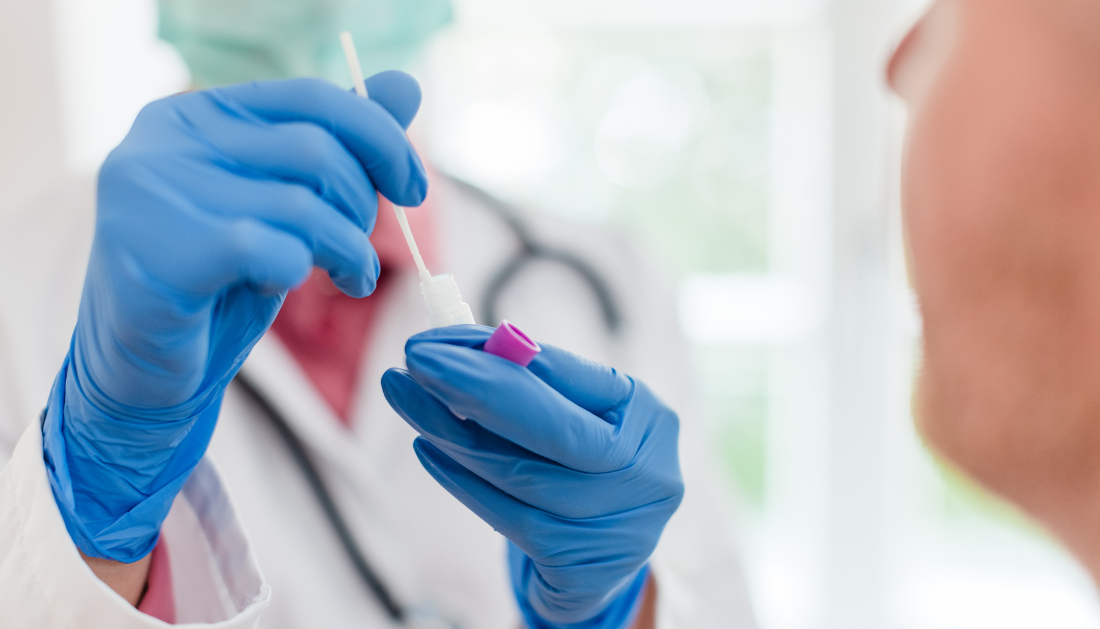

According to the research, inhaled monoclonal antibodies against SARS-CoV-2 greatly reduced COVID-19 disease in nonhuman primates, bringing another at-home therapy option for the flu and other respiratory ailments closer to reality.
The study, which was published in the journal Nature Communications, found that the amount of infectious SARS-CoV-2 in the lungs of rhesus macaques who breathed in aerosolized antibodies was up to 10,000 times lower than in control animals given control antibodies.
“The effect of the inhaled antibodies in our study was striking,” said the study’s senior author, Nancy Haigwood, Ph.D., a professor at Oregon Health & Science University’s Oregon National Primate Research Center. “The aerosolized monoclonal antibodies we evaluated were remarkably effective in protecting against lung damage. This gives me hope that one day we might be able to buy a monoclonal antibody nebulizer at the pharmacy to treat and even prevent respiratory illnesses like the flu.”
Monoclonal antibodies can aid in the elimination of invading pathogens such as viruses before the body’s normal immune responses, such as antibodies, have time to mature. Monoclonal antibodies were a major therapy option for persons infected with COVID-19 during much of the global pandemic. However, this medication has only been provided by intravenous infusion, which must be administered at a hospital or clinic.
Infusion medicines must first travel through the bloodstream before reaching the precise site of an infection – in the case of COVID-19, the lungs. Because of the delay, the medication is unable to combat a virus right away, and the infection may progress. Inhalable therapies can reach the lungs in seconds and begin working immediately.
Previous studies in mice have indicated that aerosolized monoclonal antibodies can protect against SARS-CoV-2, but this is the first time the medication has been evaluated in nonhuman primates with live virus.
The multidisciplinary research team worked with numerous groups to find and get human monoclonal antibodies that target various regions of the spike protein on the delta version of SARS-CoV-2, which was a dominant COVID-19 strain at the time. The monoclonal antibodies were created in collaboration with Aridis Pharmaceuticals and Zalgen Labs. They employed a nebulizer from medical equipment maker PARI to deliver those antibodies, which mixes liquid medication with air to form a tiny mist and is meant to create droplets that can reach the lower lungs.
The amount of SARS-CoV-2 RNA in the lungs and nasal swabs was promptly reduced 1,000-fold in nonhuman primates who received aerosolized SARS-CoV-2 monoclonal antibodies either before or after being exposed to the delta strain of the virus. Infectious virus was much lower in mice given an aerosolized human monoclonal aimed at respiratory syncytial virus, or RSV, than in control animals. The advantage was less obvious when mice just got the aerosol therapy after being exposed.
The study’s first author, Daniel Streblow, Ph.D., of the OHSU Vaccine & Gene Therapy Institute, and co-senior author Donald Forthal, M.D., of the University of California at Irvine, plan to see if they can improve the delivery of aerosolized monoclonal antibodies to nonhuman primates even further.
more recommended stories
 Pediatric Crohn’s Disease Microbial Signature Identified
Pediatric Crohn’s Disease Microbial Signature IdentifiedKey Points at a Glance NYU.
 Nanovaccine Design Boosts Immune Attack on HPV Tumors
Nanovaccine Design Boosts Immune Attack on HPV TumorsKey Highlights Reconfiguring peptide orientation significantly.
 High-Fat Diets Cause Damage to Metabolic Health
High-Fat Diets Cause Damage to Metabolic HealthKey Points Takeaways High-fat and ketogenic.
 Acute Ischemic Stroke: New Evidence for Neuroprotection
Acute Ischemic Stroke: New Evidence for NeuroprotectionKey Highlights A Phase III clinical.
 Statins Rarely Cause Side Effects, Large Trials Show
Statins Rarely Cause Side Effects, Large Trials ShowKey Points at a Glance Large.
 Anxiety Reduction and Emotional Support on Social Media
Anxiety Reduction and Emotional Support on Social MediaKey Summary Anxiety commonly begins in.
 Liquid Biopsy Measures Epigenetic Instability in Cancer
Liquid Biopsy Measures Epigenetic Instability in CancerKey Takeaways Johns Hopkins researchers developed.
 Human Antibody Drug Response Prediction Gets an Upgrade
Human Antibody Drug Response Prediction Gets an UpgradeKey Takeaways A new humanized antibody.
 Pancreatic Cancer Research: Triple-Drug Therapy Success
Pancreatic Cancer Research: Triple-Drug Therapy SuccessKey Summary Spanish researchers report complete.
 Immune Cell Epigenome Links Genetics and Life Experience
Immune Cell Epigenome Links Genetics and Life ExperienceKey Takeaway Summary Immune cell responses.

Leave a Comment